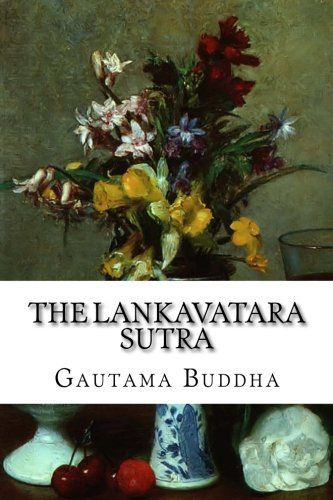
The Lankavatara Sutra
The Lankavatara Sutra draws upon the concepts and doctrines of Yogacara and Buddha-nature. The most important doctrine issuing from the Lankavatara Sutra is that of the primacy of consciousness (Skt. vijnana) and the teaching of consciousness as the only reality. In the sutra, the Buddha asserts that all the objects of the world, and the names and forms of experience, are merely manifestations of the mind: On the contrary my teaching is based upon the recognition that the objective world, like a vision, is a manifestation of the mind itself; it teaches the cessation of ignorance, desire, deed and causality; it teaches the cessation of suffering that arises from the discrimination of the triple world. Because the world is seen as being "mind-only" or "consciousness-only," all phenomena are void, empty of self (atman) and illusory: There are four things by the fulfilling of which an earnest disciple may gain self-realisation of Noble Wisdom and become a Bodhisattva-Mahasattva: First, he must have a clear understanding that all things are only manifestations of the mind itself; second, he must discard the notion of birth, abiding and disappearance; third, he must clearly understand the egolessness of both things and persons... As to the first; he must recognise and be fully convinced that this triple world is nothing but a complex manifestation of one's mental activities; that it is devoid of selfness and its belongings; that there are no strivings, no comings, no goings. He must recognise and accept the fact that this triple world is manifested and imagined as real only under the influence of habit-energy that has been accumulated since the beginningless past by reason of memory, false-imagination, false-reasoning, and attachments to the multiplicities of objects and reactions in close relationship and in conformity to ideas of body-property-and-abode. As to the second; he must recognise and be convinced that all things are to be regarded as forms seen in a vision and a dream, empty of substance, un-born and without self-nature; that all things exist only by reason of a complicated network of causation... As to the third; he must recognise and patiently accept the fact that his own mind and personality is also mind-constructed, that it is empty of substance, unborn and egoless."